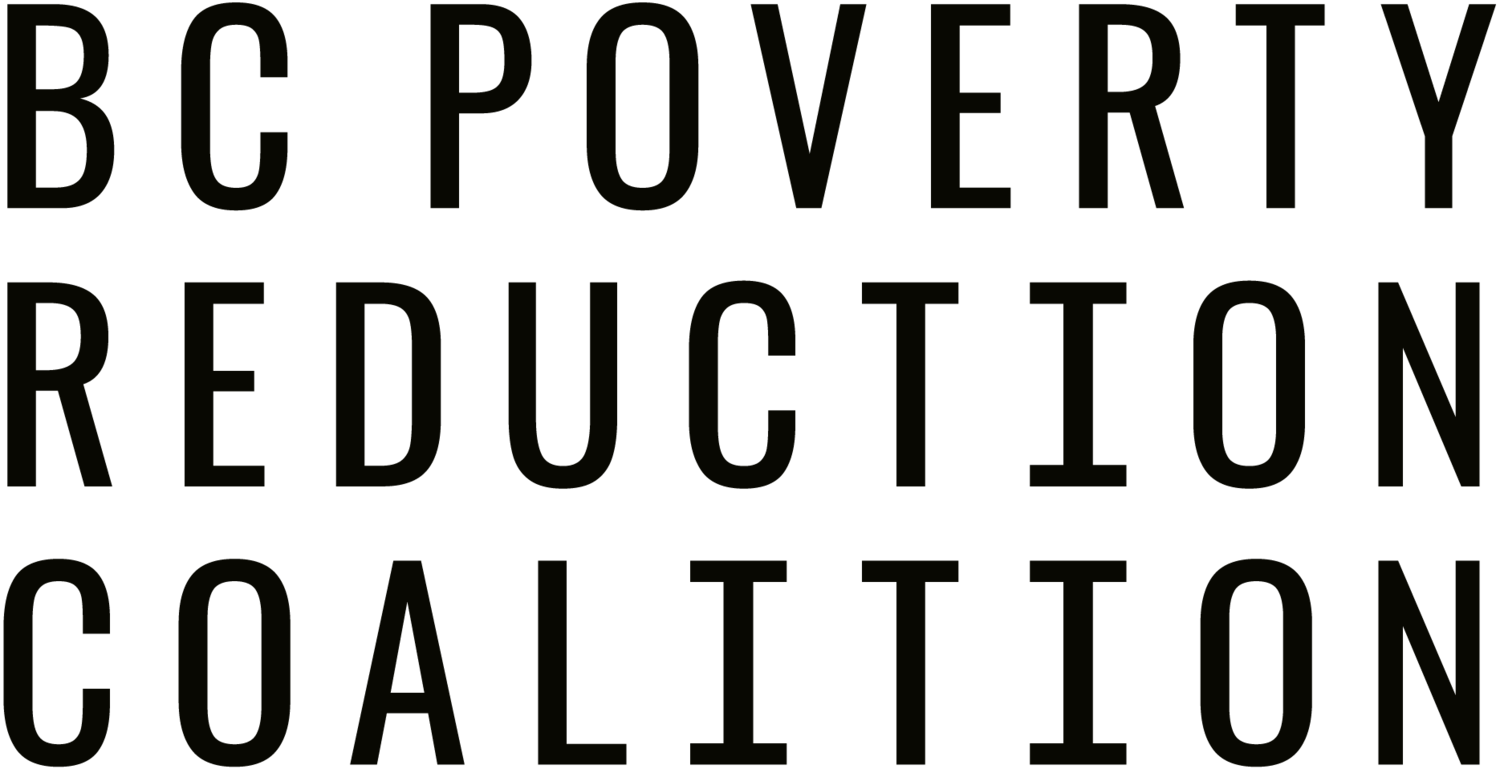Call to Action: explore rent stabilization to increase housing affordability
We must enact stronger tenant protections, such as vacancy control, to stop the injustice of profit-driven displacement.
Sent to the Premier of BC, the Housing Minister, and the leaders of the official opposition during the 2024 BC Provincial Election on September 16, 2024
Written by Chantelle Spicer, BC Poverty Reduction Coalition
The BC Poverty Reduction Coalition is comprised of over 80 member organizations and community mobilizations, representing over 700,000 BC residents. We share a vision: that there are tangible, feasible public policy solutions to end poverty, homelessness and inequality in B.C.
Today, we are asking all political parties running in the provincial election to commit to taking action to address extreme rent increases in British Columbia. We are writing to you today to ask you to include urgently needed, real rent stabilization through vacancy control. Specifically, we ask all parties to pledge that, if elected, they will include in their mandate a commitment to examining specific policy options for rent stabilization.
Due to the urgency of this issue, we ask for this action within the first year of taking office.
Background
British Columbia is facing a housing crisis of unprecedented proportions, and the brunt of this crisis is borne by the 1.5 million British Columbians who rent their homes. The government has recognized the critical importance of attainable and affordable housing and has taken steps to increase housing supply, protect older rental stock, restrict the use of short-term rentals, and try to limit bad faith evictions based on “landlord’s use.”
We support these important changes, but rents continue to rise steeply, far out of proportion to inflation or wage increases. Unchecked rent increases mean that people across the income spectrum in urban and rural B.C. are pushed into homelessness and displaced from their communities. First United data show that Indigenous people and people with disabilities are particularly at risk. After eviction, 25% of tenants could not find a place to live. For Indigenous tenants, this percentage rose to 46%, and for people with disabilities, it was 34%.
The availability of unlimited rent increases also creates a strong incentive for landlords to evict tenants to evade rent increase caps, which only apply to ongoing tenancies. Data from the B.C. Eviction Mapping Project shows the high prevalence of “landlord’s use” evictions, after which rent rises steeply. The government has introduced new processes and timelines to make it harder for landlords to evict in bad faith for “landlord’s use”, but the incentive to evict in bad faith will remain as long as unlimited rent increases are available on tenant turnover.
We understand the mythologies that exist in using vacancy control as a tool to stabilize rents including that developers will implement a capital strike and cease building or that it will disincentivize upgrades and repairs. These myths have been categorically busted through the BCGEU literature review and historical analysis of vacancy control policies in BC.
Evidence in this report shows that:
● Rent control is not a major factor in determining new housing supply (as it is more affected by local economic and housing stock characteristics and government investment/disinvestment in rental housing);
● across various jurisdictions, second-generation rent controls have had “very little short- or long-term impact on construction rates”;
● the removal of rent controls has little effect on supply and did not lead to supply booms;
● most landlord profits are generated through increases in property value appreciation, not from monthly rent, although both rent and profitability are very high in British Columbia right now, making development profitable even with vacancy control.
It is time that we rely on evidence-based housing policy rather than deregulated, profit-driven developers to address housing affordability.
Vacancy Control as a Social Policy Solution
Vacancy control is ultimately a political question rather than an economic one because it is fundamentally a question of values. It is a question of whose interests should be advanced and protected in housing markets — investors who profit from turning over units to charge higher rents or tenants who fear displacement. As noted by Elliot Rossiter, any defensible view of justice in housing politics would not allow investors to profit from tenants' suffering through displacement. As noted by Mo Amir, the BC NDP Minister of Housing has publicly recognized the role vacancy control plays in protecting renters when SRO vacancy control was implemented earlier this year:
The housing minister praised vacancy controls as “protecting vulnerable people who are being exploited by some bad-faith actors who are using pressure tactics on tenants to leave their rental units so they can hike the rent.”
We should enact stronger tenant protections, such as vacancy control, to stop the injustice of profit-driven displacement.
We stand firmly behind our members at BCGEU who have called for:
● Rent control to be implemented as a progressive, evidence-based social policy rather than a purely economic or market-oriented control
● Enacting interventions against institutional investors such as ownership disclosure, property data transparency, and limitations on speculative investment in rental housing
● Creating or strengthening multi-jurisdictional legislation and enforcement mechanisms
● Progressive taxing of landlord and developer wealth to create funding opportunities for affordable social housing
● Nesting regulatory approaches alongside complementary policies. They must be designed in ways that create strong incentives for compliance while running alongside complementary policies that are well-proven to be effective at targeting housing inequality at the same time.
Those include, but are not limited to:
○ mechanisms that hold landlords accountable for basic maintenance and major capital upgrades,
○ meaningful penalties for eviction-seeking behaviour and other forms of retaliation, and
○ significant support for the most marginalized tenants who are much more likely to be targeted for eviction.
The BC Poverty Reduction Coalition has long championed the use of vacancy control as one tool in the toolbox for addressing the housing crisis in the province. We call on all parties to pledge that if they form government, they will commit to examining specific policy options for rent stabilization as part of their promise to address affordable housing.
Vacancy control may not build one unit of housing, but it is an evidence-based tool for stopping the loss of what is left of affordability in this province.


